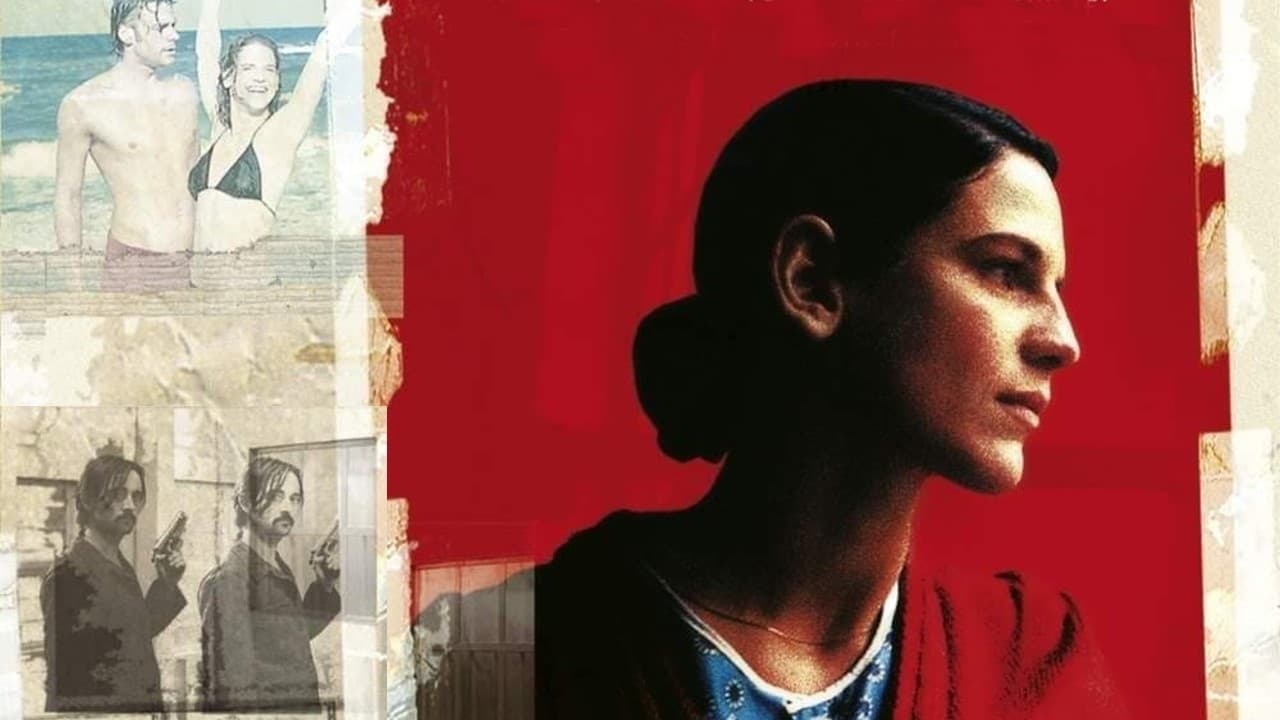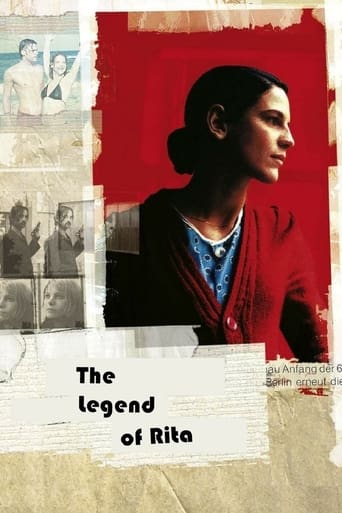

What a waste of my time!!!
... View MoreThe greatest movie ever made..!
... View MoreSave your money for something good and enjoyable
... View MoreBlending excellent reporting and strong storytelling, this is a disturbing film truly stranger than fiction
... View More"Die Stille nach dem Schuß" or "The Legend of Rita" is a German movie from 2000, so this one will soon have its 20th anniversary. It is among the more recent works by "Oscar-winning" German filmmaker Volker Schlöndorff, who directed this one and also wrote the script together with somewhat legendary screenplay writer Wolfgang Kohlhaase. The film runs for 100 minutes roughly and tells an entirely fictitious story about former West German terrorist and how she lives under an alias in the GDR. The upcoming reunification may have made things easier for most, but not for her. I personally really wanted to like this movie here, but it was very difficult to end up appreciating. The problem is not that it is a bleak one, but that lead actress Bibiana Beglau was extremely underwhelming in her most known character performance. I would almost call her miscast. She was not only way too young for the role, but also she added almost nothing in terms of face expressions and range to a character that offered so so much and could have turned out so memorable if it had been portrayed by a superior actress. No idea why the Berlin Film Festival and also the European Film Awards gave her some recognition. The still pretty young Nadja Uhl was better for sure, but also not nomination or even awards worthy. The best performance probably still came from Martin Wuttke here who gave a commanding performance in the few couple scenes he was on. The script is not a revelation either, but making a fiction film about the days of RAF Germany (or the years after) is something we don't see too often and Schlöndorff's and Kohlhaase's experience certainly shows in terms of subtle moments, but also the showy ending for example. I just really wish they could have cast another lead actress here as Beglau does not have what it needs to carry this film from start to finish as she is in basically every single scene. A negative deal-breaker for me. Not recommended.
... View MoreThe film "Die Stille nach dem Schuss" has the problem, that the audience can neither identify with the characters nor with the society. Some of the characters are German city guerrillas and thus loose cannons, not much different from violent criminals. The other characters are Stasi officers, the Bolshevist equivalent of the CIA. And the society is the Bolshevist dictatorship GDR, which was never a very pleasant place to live in. Still my knowledge about the setting is above-average. I have read the book Der Baader Meinhof Komplex by Stefan Aust (670p.), which is a leading work on the subject. I even read "Ulrike Meinhof und die deutschen Verhaeltnisse" by Peter Bruecker, which contains many fragments of the writings of Meinhof. It did not make me any wiser with regard to the ideas, that motivated this (European!) movement. Terrorism is not exceptional, but always sectarian and therefore escapes the common sense. Somehow some groups in our society experience state oppression to such an extent, that in their view the situation escalates into a hidden war. It is the paradox, that ordinary people like police officers become their primary target. Even in Utrecht, my residence, a constable was killed by a RAF member, in a situation similar to the French officer from the film. In addition I have read enough about the GDR to appreciate the living conditions. In spite of the revolutionary facade the GDR society was actually more rigid than for instance the USA. In fact this region had always been the most conservative part of Germany, so that the contempt for former terrorists in the film is probably authentic. The party elite consisted of oppressive bureaucrats but cherished its own terrorist past and was probably indeed sympathetic (and suspicious) towards western terrorists. So in general the atmosphere of the film looks credible. It is a pity that the narrative does not elaborate on Ritas scruples, or perhaps the absence of them, with respect to her past deeds. It may be that she represses these thoughts, but we don't know. All in all she seems to enjoy herself. I don't know whether former RAF members had happy lives in the GDR. If so, one of course wonders why they didn't migrate in the first place. Although the story was not a revelation to me, it didn't bore me either. The scenes of GDR life, the collective company holidays, the community singing, the droll corporate life, and the stage properties (Trabant, Wartburg cars, 60s furniture) are sufficiently realistic to allow for recognition. Unfortunately, the endings of the Schlondorff films that I have seen (Die verlorene Ehre der K. Blum, Strajk!) are never a true climax, and this weakness also holds for this one. The killing of Rita on a motor bike is banal, and an ending without ambition, except perhaps a faint attempt to restore justice. In conclusion, the film has its merits in that it is credible and captivating. However, I would not call it an intellectual masterpiece. I guess that Schlondorff shared my inability to sympathize with his characters, and therefore could not connect with their thoughts. If you are interested in GDR life or social films, consider seeing my other reviews.
... View MoreOkay, so I was really primed to love "The Legend of Rita". And, yes, no surprise, I love this movie. Here's why: First of all, it's an objective film about the European left in all its shapes and sizes. Rita is a member of a radical group of German urban guerrillas somewhat based on the Baader-Meinhoff gang and somewhat based on the Hash Rebels. She kills a police officer, but unlike Western mainstream cinema, we still sympathize with her and identify with her struggle. She is aided by the East German Stasi, who see as normal people doing a job they believe in, rather than as the Stalinistic secret police we're told to believe they were. We see East Berlin as a difficult place to live. But not as the colorless, endless ghetto with bread lines that books and films have also told us. It's an objective film.Second of all, it's a film where the main character is a woman driven by her ideological convictions AS WELL AS her loves and desires. If Hollywood made the film, unrequited love or some sort of sexual frustration would drive her. Her political convictions and dedication to leftist revolution are what give her strong character and is not her Achilles heel.The film follows Rita as a young member of a radical group in '70s Berlin. While traveling back from Lebanon, a series of events leads her to make friends with the Stasi who aid her and her companions throughout their misadventures. After killing a cop during a police chase, she creates a new identity and lives a normal life in the East.From there the film follows her life and the end of the Cold War (World War III). I know most of the world was celebrating Glasnost. But to me, it felt like such a huge failure. Now, I may be an anarchist and I may have the same problems many of you had with the Soviet Union. But the fall of communism still felt like defeat. And for revolutionaries around the world, including people like Rita many of whom were turned over to the invading right wing bureaucrats, it was a palpable defeat.
... View MoreSchlondorff has no strong sense of what to make of his terrorist characters. Rita is idealistic but her personal life is pulled in rather conventional bourgeois directions. The film points to the paradox of idealistic murder and suggests that society has no ability to appreciate the complexity of such a character, but why should it when even a work of art like this film is unable to explore what's inside its title character. A muddled film about a muddled time.
... View More